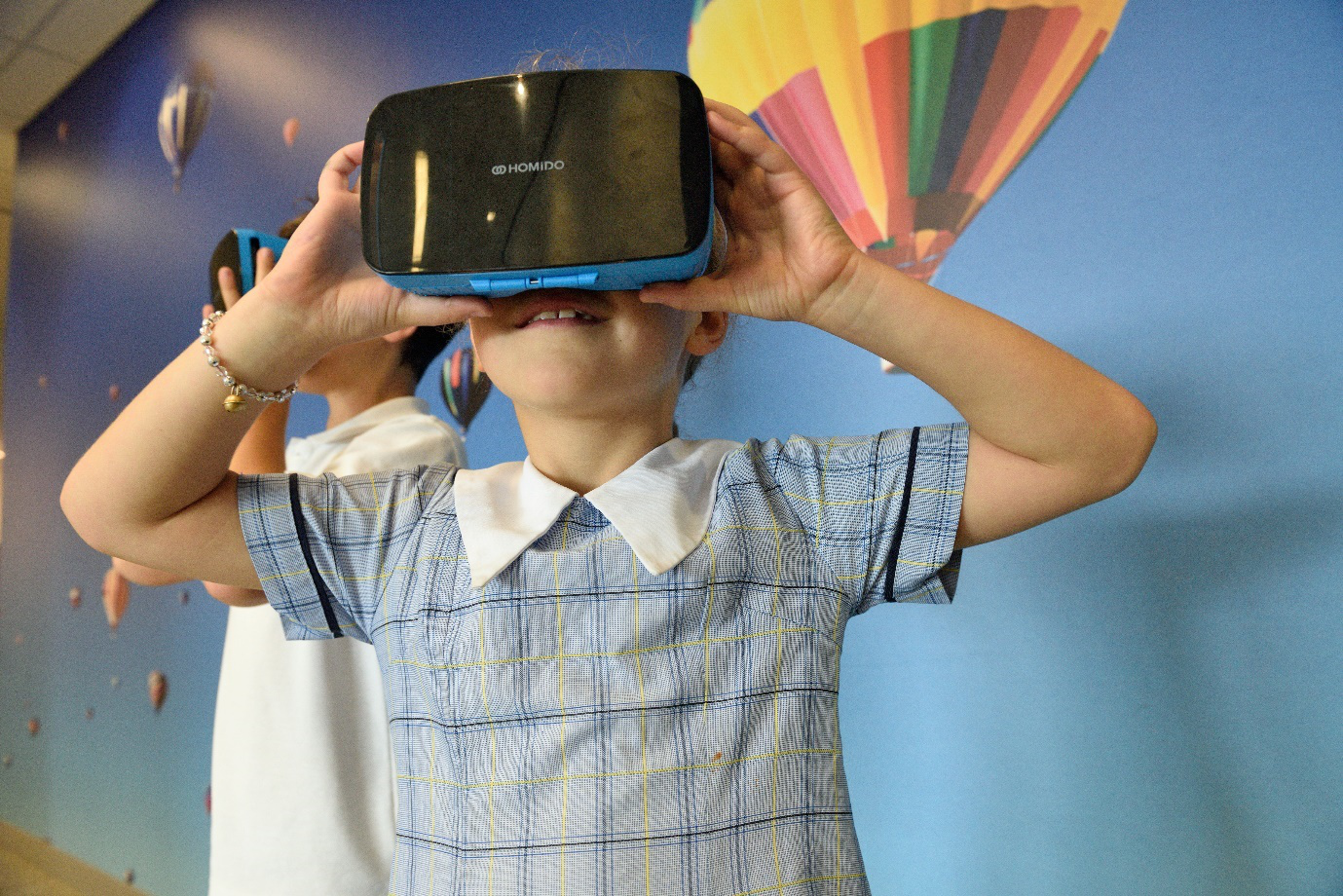8 new frontier technologies accelerating learning innovation
)
The R&D department of the world, i.e. the startup scene and its founders, is the source of innovative, tech-enabled solutions. This R&D department is fuelled by private capital mostly, over which venture capitalists decide (of which 96% are male, which leads to another hot topic of balance in decision-making on which innovations deserve funding and which are left to die).
Education Technology, or EdTech for short, will never be the darling of venture capitalists. The unit economics, the timelines, and the RoI maths work differently for EdTech than for FinTech or E-commerce, for example. However, even those investors most sceptical about investing in EdTech cannot deny that the benefits of online learning have been solidly established during the pandemic. The World Economic Forum reported in 2020 that, on average, students retain 25-60% more material when learning online compared to only 8-10% in a classroom. As a result, EdTech globally has taken flight. In 2021, the global EdTech sector saw nearly USD 21bn in equity investment, which is three times greater than pre-pandemic investment levels, and we saw an increase of 170% in the number of investors investing in EdTech in 2021.
Although we see equity investment in EdTech decreasing to an expected USD 17.4bn in 2022, we have experienced a paradigm shift in how the world thinks about learning – it is impossible for us to think about learning the way we did a decade ago. Just like we now know that rain is a geothermal process and not made by the Gods, we now know that learning can be highly engaging, personalised, and at the learner’s own pace and time. Learning does not need to be unengaging, irrelevant or boring.
For learners, especially younger ones, true joy in learning will help them be successful in a society that is changing at an ever-increasing rate. In today’s society, good grades are not necessarily conducive to a successful career. Adopting a mindset of lifelong learning enables us to be successful, stay relevant and foster innovation, which is needed to create a society that we wish to live in. The smart, strategic use of technology and digital infrastructure enables what learners now expect from their learning experience, i.e. for those experiences to be engaging and satisfying, ultimately leading to better outcomes.
In the realm where startup founders, powered by private capital, create tech-enabled innovations for learners, exciting new categories have emerged. These innovations have great potential to re-wire our brains on what we think, feel and do when we think about learning, to spark that joy for learning and catalyse curiosity, from which innovations are born.
In collaboration with Dealroom, we have created eight categories of new frontier technology applications that accelerate learning innovations.
- Adaptive learning
Leveraging technology (mostly AI) to deliver customised resources and learning activities to address the unique needs of an individual learner.
Example: GenieBook - XR (AR, VR and MR)
Companies using real and virtual combined environments and interactions generated by computer technology. It includes Augmented Reality (AR), Mixed Reality (MR) and Virtual Reality (VR).
Learning in an XR environment is immersive and therefore highly engaging.
Example: Shintavr.com - Metaverse x Education
A digital reality that combines aspects of social media, online gaming, augmented reality (AR), virtual reality (VR), and cryptocurrencies to allow users to interact virtually. A space where people can play, socialise, work and learn.
By being in the game or experience, rather than on it, a similar learning process happens as when kids are playing in a sandbox, where there is no intrusion by monitoring or assessment. What emerges is a willingness to experiment, to understand, to follow curiosity, and to hold one’s self accountable to personal standards for achievement. This primarily has to do with sitting ‘first-person’ in the learning process. Moreover, the disappearance of physical space and time allows for endless possibilities. Think a class trip to the pyramids in Egypt and being back in time for recess!
Example: Aventis Metaverse – currently executive education only - Learning DAOs
Basically a school owned by its students, Learning DAOs (DAO standing for Decentralised Autonomous Organisation; Learning DAO being a term coined by Crypto, Culture, and Society) give students ownership. Students co-create a new type of learning organisation. What is special about these initiatives is that students who are learning through these DAOs also earn ownership and will have a say in the direction of the learning organisation, for example, students can vote on syllabus, scholarships and speakers. Students co-create courses and through community-based learning, members explore the topics.
Example: Invisible College; Odyssey; Dream DAO - Learn-to-Earn (L2E)
Staying in the domain of Web3 for education, Learn-to-Earn (L2E) offers new education models in which instead of paying to learn, a person is rewarded for demonstrating that they have learned something. Learners often obtain an NFT indicating a “membership” of the institution and earns tokens of the institution while learning. Upon completion, Web2 based (online) and Web3 based (on-chain) certifications are issued.
In the same domain, through Share-to-Earn Scholarships, sponsors can provide “membership” NFTs to scholars to begin L2E. The sponsor benefits through making passive income.
Example: Rabbithole (adult learning); Questbook.app - Credentialing platforms
Companies and projects helping to build an on-chain reputation to signal what someone knows and can do.
Students can build an on-chain portfolio of degrees and also (better accessible) micro-credentials, enabling them to build a personalised and tamperproof portfolio of skills and knowledge. Since micro-credentials are less costly than college degrees, and can be delivered on mobile-first platforms, blockchain based micro-credentials built on quality and relevant content, contribute to a more equitable society.
Example: Edufied - Voice and Chatbots
Developing and applying tools using voice (including software, hardware and process) that are intended to facilitate the teaching and learning process. It also includes Chatbots which can be used to provide student support in after-school related tasks.
For learning, these solutions give back time to teachers to do what they are good at and love doing: teaching and inspiring learners.
Example: NoodleFactory - Gamified Learning
Game-based and gamified education strategies use games, computer simulations and storytelling to enhance a student's engagement with learning and comprehension of the subjects.
Example: Jules Corporation

Which innovations, especially looking at the Web3-related ones, do we think will see the most interests from Venture Capitalists? Although the adoption of blockchain technology is well underway globally, venture capitalists and investor engagement - especially in the Web3 for education space- is still low, and investors are taking a wait-and-see approach. The domain where Learning DAOs and Learn-to-Earn models emerge is so nascent that the traditional laws applied by venture capitalists such as traction and retention do not work. Moreover:
- Exit strategies and the timelines vary between Web3 and Web2 companies. Some Web3 companies go public after 6 months, whereas IPO for a Web2 based solution is typically expected after 10+ years
- NFTs have created a real hype and benefited from great exposure, however, there is no sustainable valuation method yet.
- Regulation is still being drafted for the Web3 space which is not encouraging investors either.
- And, increasingly, Web3 projects are looking for support from VCs and partners beyond the provision of capital, in areas including talent acquisition, community expansion and engineering, which knowledge not all VCs have gained yet (an opportunity for VCs would be to connect with founders and learn, now).

Some of the biggest chances for technology in education lie in contributing to better learning outcomes, and ultimately to a more equitable society. New technologies such as VR and AR make learning more fun and engaging, and higher engagement has a strong correlation with better learning outcomes. Also, new technologies have the potential to make education more affordable and accessible, for instance through L2E initiatives and mobile-first, blockchain-based micro-credentials.
How our R&D department, i.e. the startups that are building the future of learning, will develop is in the hands of leaders deciding over public and private capital. As long as the balance in these decision making bodies represents the balance of the learner population, the technology that can be built with this capital, will ultimately support the society we wish to live in.
 Hester Spiegel-van den Steenhoven Biography
Hester Spiegel-van den Steenhoven Biography
Hester is an investor and education entrepreneur. She had a 15+ year international career in Management Consulting in the Netherlands, UK and Germany before she pivoted career and became Germany’s country head for a global EdTech company, bringing modern education system and coding school “42” to Germany. In Singapore, she co-founded Epic Angels, the fast-growing female angel investment collective that aims to grow the number of female decision makers in Venture Capital, became Venture Partner at Kaizenvest, the asset manager focused on future of learning and work, as well as board advisor to EdTech startups and mentor for various startup accelerators and incubators. Connect with her on LinkedIn here: https://www.linkedin.com/in/hesterspiegelvandensteenhoven/


)
)
)
)
)
)
)
)
)